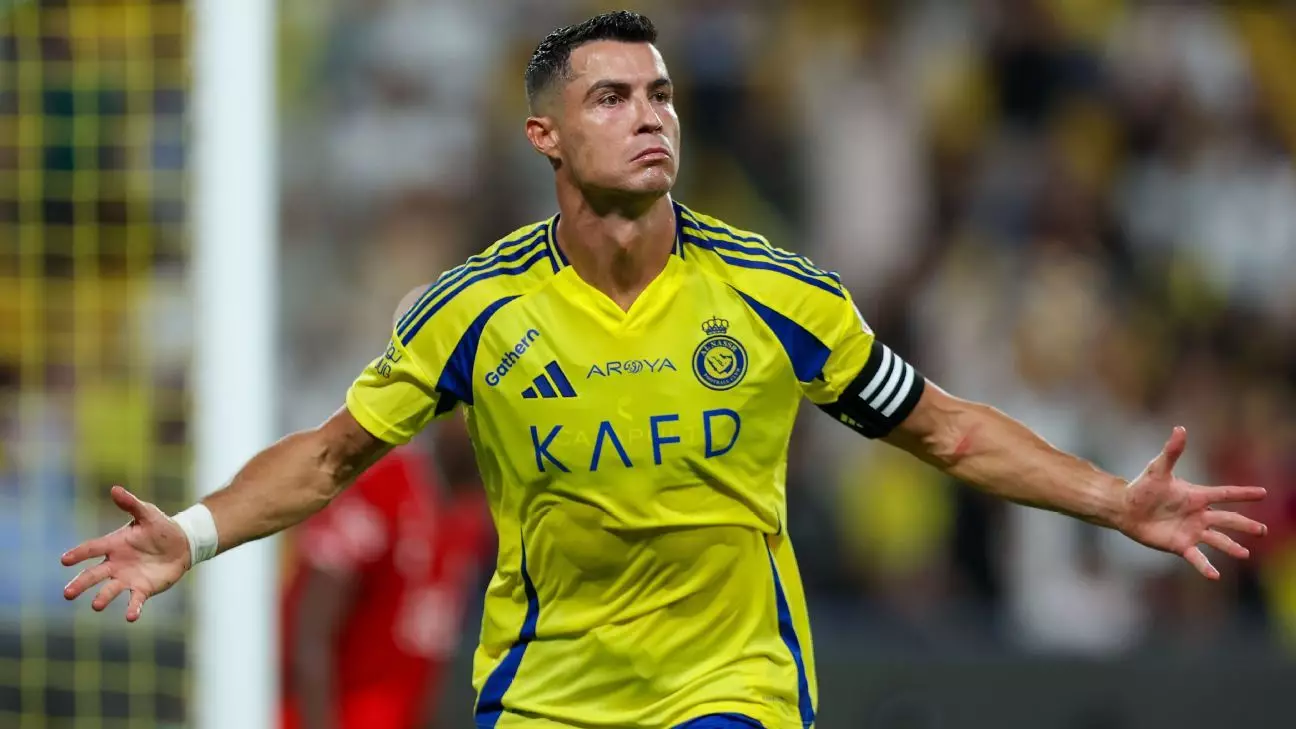In a recent discussion regarding the future of Manchester United, Cristiano Ronaldo, the club’s former star, expressed the pressing need for a comprehensive overhaul, particularly following Sir Jim Ratcliffe’s investment in the team. With Ratcliffe’s acquisition of a 27.7% stake earlier this year, there is renewed optimism about the club’s trajectory. However, Ronaldo’s insight into the necessity of rebuilding resonates deeply in a landscape where loyalty to traditional clubs often collides with the harsh realities of competitive football.
At 39, Ronaldo articulates a perspective shaped by experience. He identifies the core issue: Manchester United requires a fundamental reset to reclaim its status as a footballing powerhouse. “They need to rebuild everything,” he emphasized, categorically stating that while the club may boast a rich history, the current structure is insufficient for competing at the highest levels. This frank assessment urges stakeholders to scrutinize not just the team’s performance but the underlying mechanisms driving its operations.
Ronaldo’s reflections extend beyond mere tactical alterations; he calls for a cultural shift within the club. The former forward acknowledges that such significant changes cannot be achieved overnight. “They understand that. This is the only way,” he conveyed, spotlighting the gradual process required to realize long-term success. Although there may be initial successes in shorter formats, such as cup competitions, the road to securing titles like the Champions League, Europa League, or even the Premier League appears fraught with challenges. His conviction that rebuilding must start from the ground up highlights a pragmatic approach that many fans and analysts have echoed.
Moreover, it’s essential to address the emotional backdrop of Ronaldo’s exit from Manchester United. After a contentious departure—sparked by an explosive interview with Piers Morgan—he remains nostalgic yet firm in his stance. Despite the unconventional end to his tenure at the club, he asserts an unwavering affection for Manchester United. “I love that club; you know, I’m not that kind of guy that forgot the past,” he insists. Such sentiments illustrate a complex relationship, fraught with both pride and disappointment.
Ronaldo’s nuanced observations about management underscore the complex interplay between ambition and reality in football. He highlighted his disagreements with current coach Erik ten Hag regarding the mentality within the club. Stating that “you cannot say that you’re not going to fight to win the League or Champions League,” he criticized any semblance of defeatism that might permeate the team culture. Such statements reveal a desire for a united front, where ambition drives each member of the organization.
Ronaldo also welcomed the arrival of Ruud van Nistelrooy as Ten Hag’s assistant, confident that someone with a rich understanding of the club can rebuild the morale and skill level of the players. This acknowledgment that insider expertise can bring valuable insights and guidance reflects the importance of continuity at football clubs during transitional phases. It indicates that while new strategies and investments are crucial, so too is the wisdom of those who wore the club’s colors.
While Manchester United has had a rocky start to the current Premier League season—achieving just one win and suffering two defeats—it is crucial to remain hopeful. Ronaldo’s endorsement of Ratcliffe’s investment signifies potential for a turnaround; however, patience and persistence are paramount. Just as Ronaldo has seamlessly transitioned into life in Saudi Arabia with Al Nassr, establishing himself as a leading figure even without silverware, he exemplifies the determination needed to forge a new path for Manchester United.
Ultimately, what Ronaldo desires for Manchester United mirrors his personal aspirations: a resurgence to greatness, an era where talent, strategy, and ambition converge. As the club navigates its current struggles, the focus must remain on the long-term vision that respects its illustrious past while ambitiously pursuing a brighter future. The rebuilding process may be long and arduous, but the collective commitment to transformation could very well rekindle the legendary legacy of one of football’s most storied clubs.


Leave a Reply